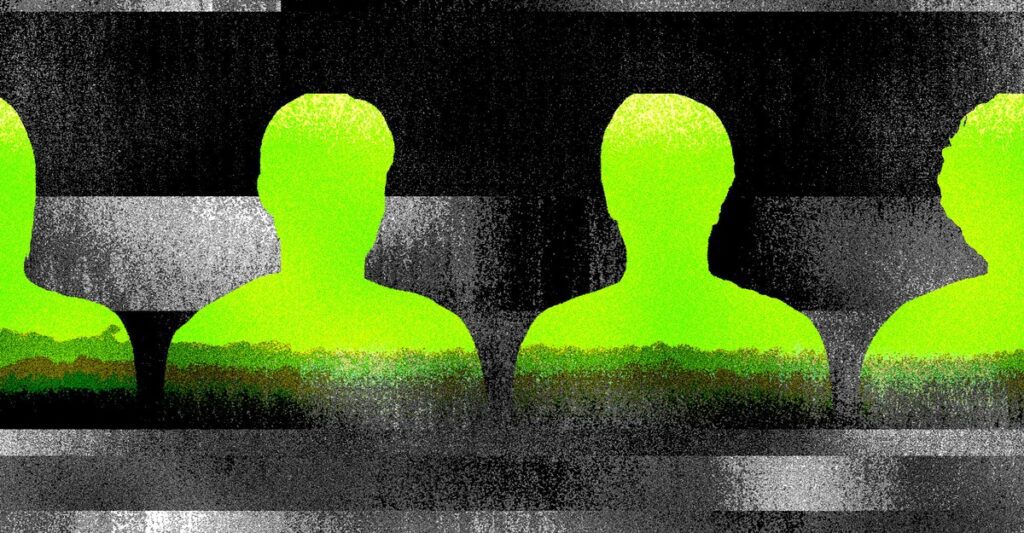The Dark Side of AI: The Alarming Case of Muah.AI
In today’s tech-driven world, the fascination with artificial intelligence continues to grow, offering exciting new possibilities. One emerging player in this arena, Muah.AI, lets users create AI-powered “girlfriends”—chatbot companions that can communicate through text or voice and even share images on request. With almost 2 million registered users, Muah.AI prides itself on being "uncensored." However, a recent data breach has revealed a disturbing trend regarding the misuse of its technology.
A Shockingly Dark Discovery
Last week, Joseph Cox from 404 Media broke the news about a significant data leak from Muah.AI, brought to light by an anonymous hacker. What he discovered was unsettling: prompts featuring shockingly inappropriate requests, including explicit solicitations involving minors. Although it’s uncertain how the Muah.AI system responded to these prompts, the existence of such inquiries raises serious concerns about user intentions.
Major AI platforms like ChatGPT have stringent filtering systems to block harmful content, but lesser-known services may lack such safeguards. Cases of generative AI being used to create sexually exploitative images are not just theoretical. Earlier this year, deepfake pornographic content featuring celebrities like Taylor Swift circulated online. Advocates for child safety are particularly troubled by the increasing use of AI in the creation of exploitative imagery involving minors.
The Scale of the Problem
Troy Hunt, a prominent security consultant and the creator of the data-breach-tracking website HaveIBeenPwned.com, also received the leaked data from an anonymous source. Hunt’s findings were chilling; a search for the term "13-year-old" yielded over 30,000 results related to explicit sexual acts, underscoring the extent of the dilemma. "It’s highly alarming to see such a mainstream AI service associated with this," he said.
What particularly surprised Hunt was that some users appeared to be entirely unconcerned about their anonymity. For instance, he found a linked email address of a C-suite executive claiming to use the platform without any clear attempt to hide his identity.
The Response from Muah.AI
After reaching out to Muah.AI for clarification, a member of the company’s Discord channel, identified as Harvard Han, confirmed the hack and expressed disbelief at the number of troubling prompts indicated by Hunt. "How is it possible? We have two million users! There’s no way 5 percent are pedophiles," he asserted. However, the data leak shows that even a small fraction of users can lead to a massive problem.
Han reflected that they have attempted to put filtering systems in place to screen out inappropriate prompts, but user complaints of unfair bans led the team to soften those restrictions. He acknowledged that while many requests for CSAM might be denied, some clever users could circumvent the filters.
Interestingly, Han suggested that a small percentage of users turning to the platform may actually be grieving, seeking to recreate AI versions of lost loved ones. This, however, raises further questions about the necessity of rigorous content monitoring.
The Legal and Ethical Implications
The conversation around AI-generated content, particularly from sites like Muah.AI, leads to fundamental issues about freedom of speech and censorship. Han stressed his belief in unregulated speech, comparing the situation to owning a firearm that can be used for both protection and harm.
Legally, generating computer-created images of child pornography featuring real children is prohibited in the United States. The Supreme Court has ruled against a total ban on computer-generated child pornography based on First Amendment grounds. Yet, the legal landscape surrounding generative AI remains murky, and it’s unclear how laws will evolve in this fast-paced era.
The Path Forward
As shocking as the Muah.AI data breach is, it serves as a wake-up call for the industry. The documented issues are likely more widespread than we realize; Hunt states he’s confident that other similar platforms may be harboring their own perilous secrets.
The lingering question remains: should platforms like Muah.AI be allowed to exist, especially when they fail to implement stringent safeguards against misuse? The chilling reality is that the age of cheap, easily accessible AI-generated child exploitation is upon us, posing a relentless challenge for regulators, advocates, and society at large.
Conclusion
This situation illustrates a pressing need for robust oversight and technology regulation. As conversations about the ethical implications of AI continue to unfold, platforms must take greater responsibility for their impact on society.
The AI Buzz Hub team is excited to see where these breakthroughs take us. Want to stay in the loop on all things AI? Subscribe to our newsletter or share this article with your fellow enthusiasts.




